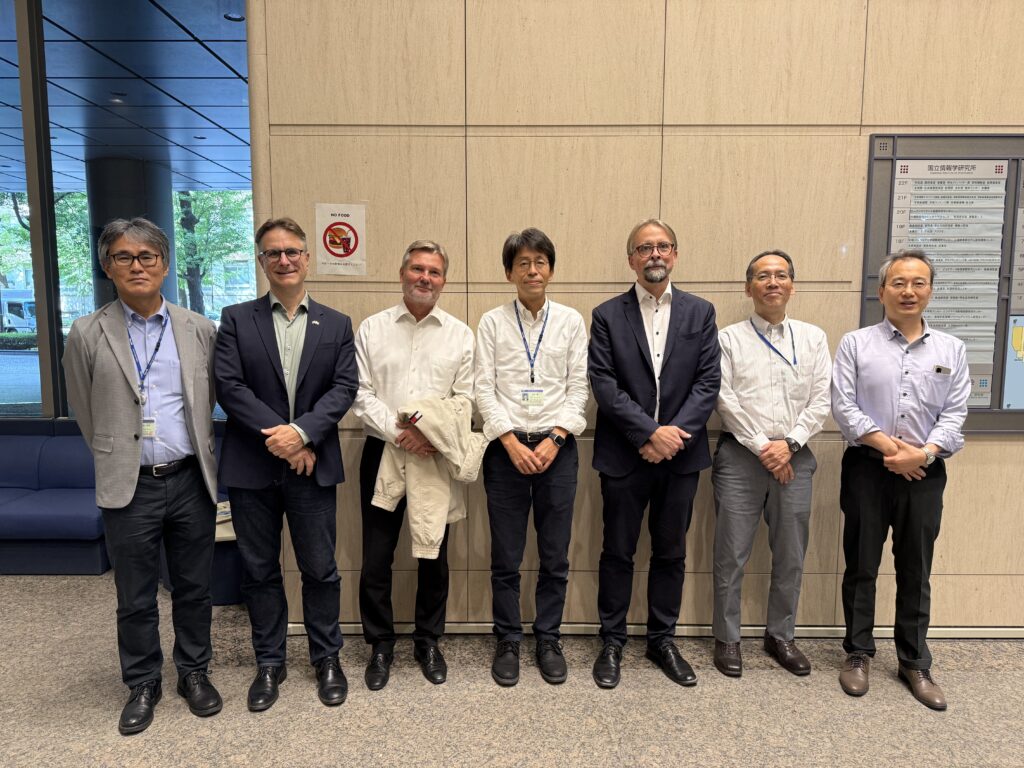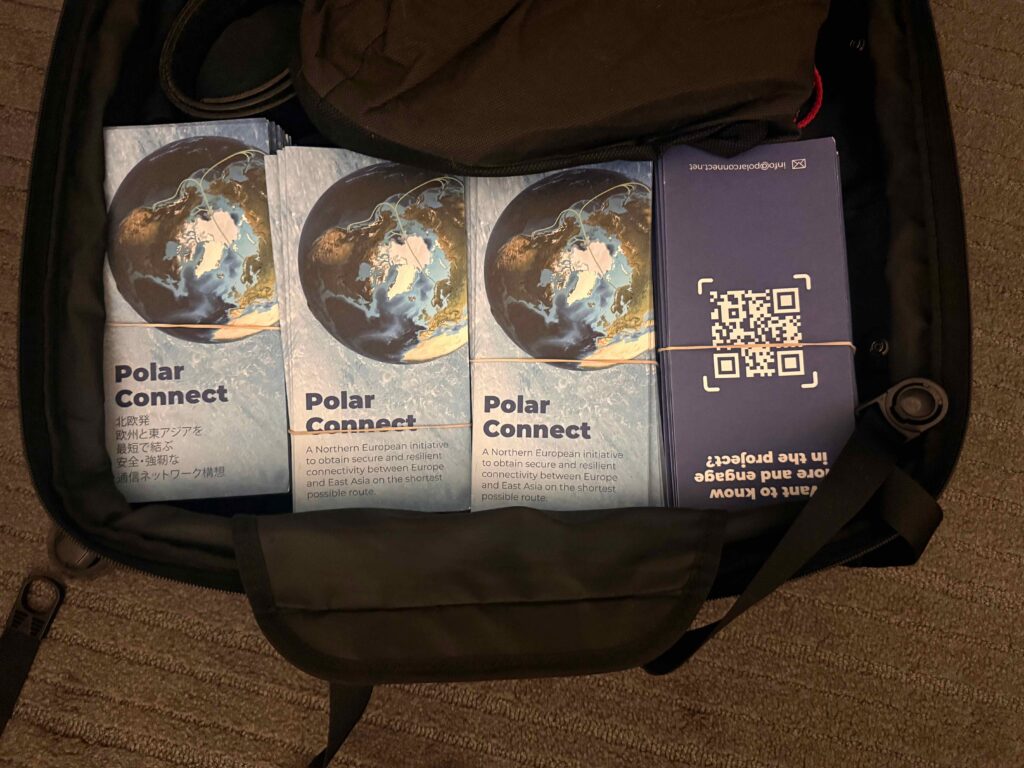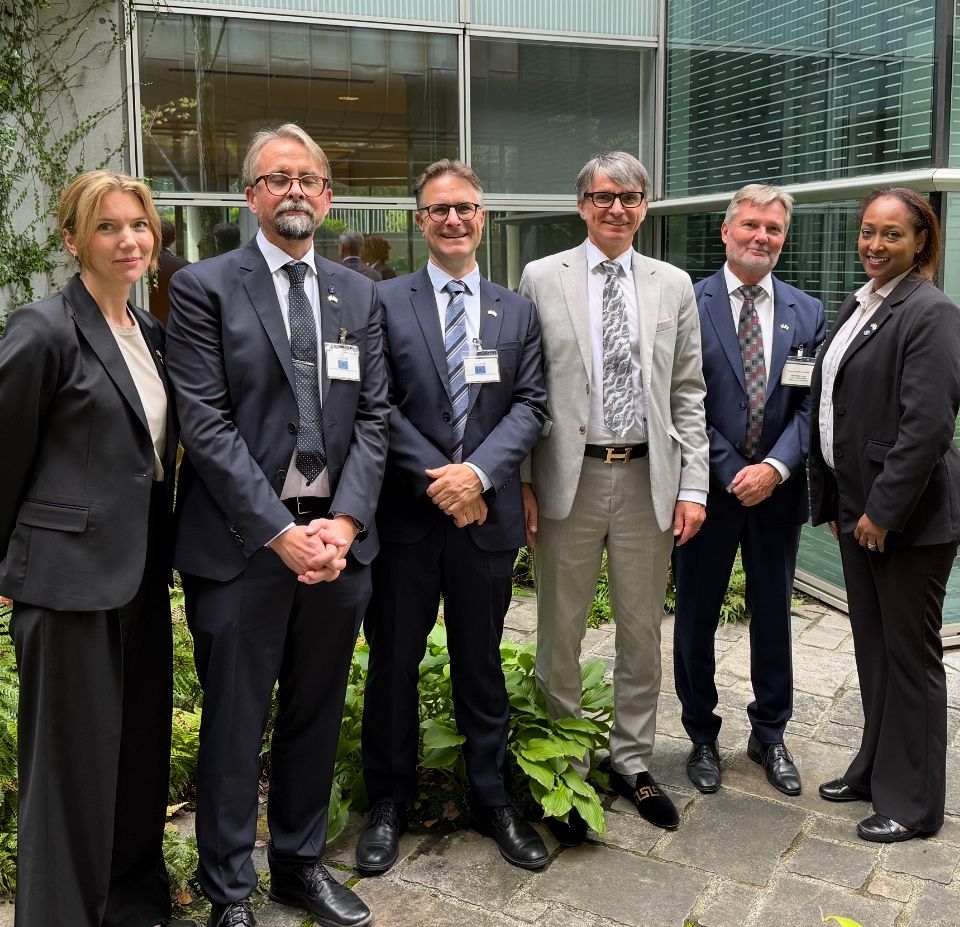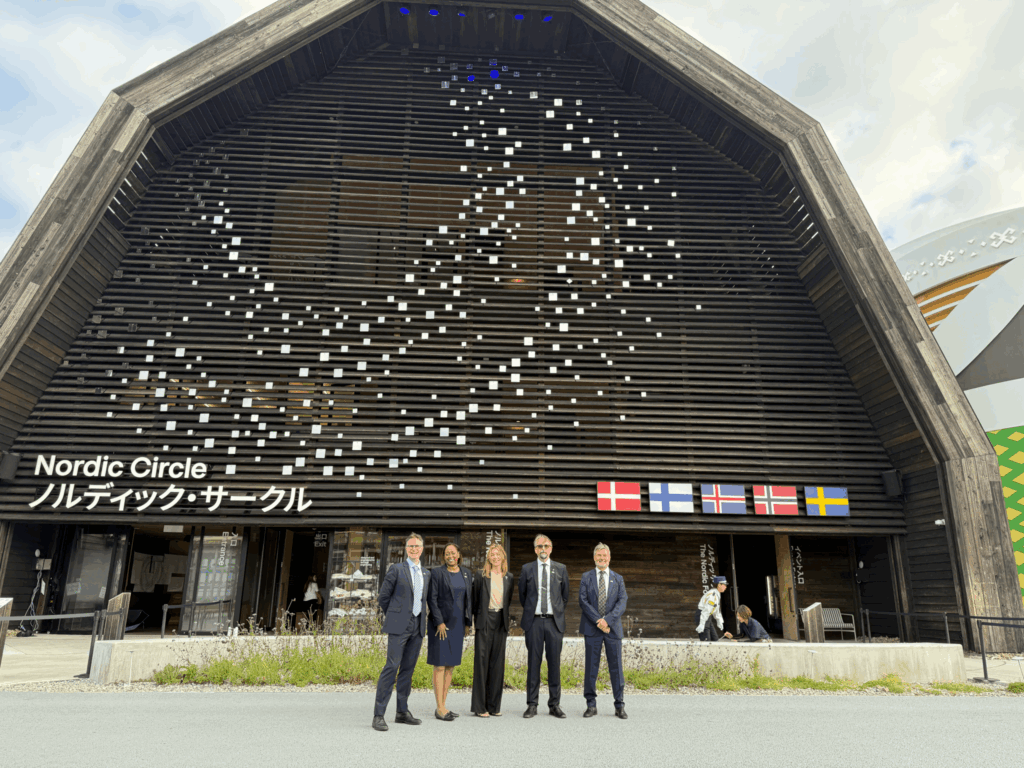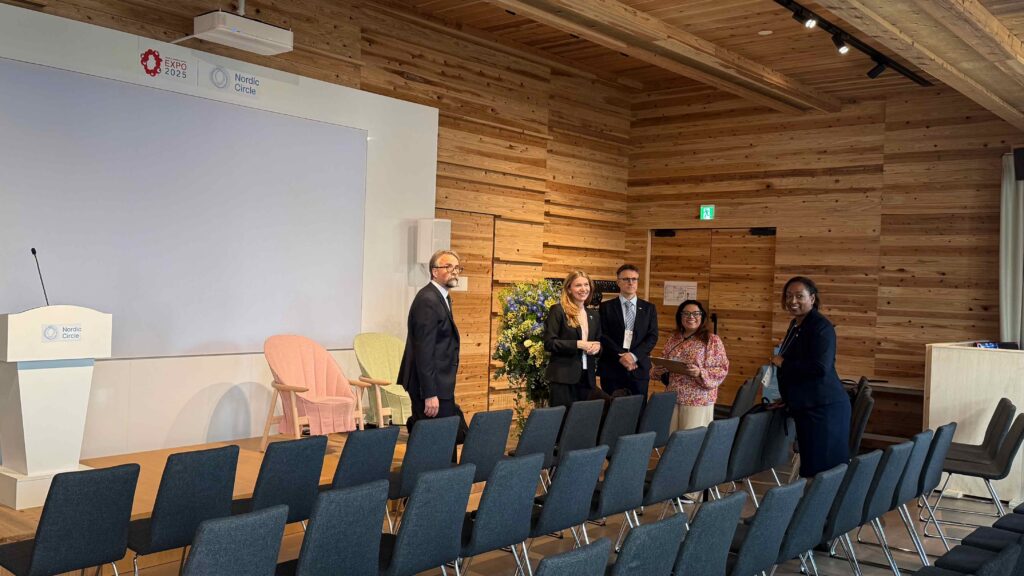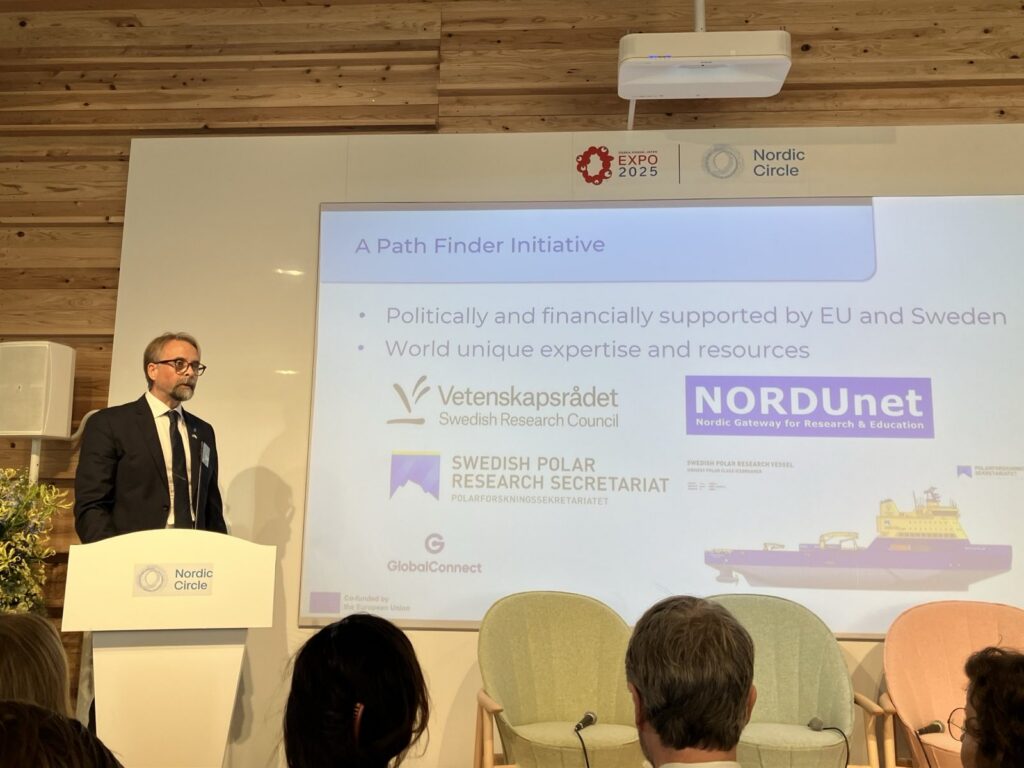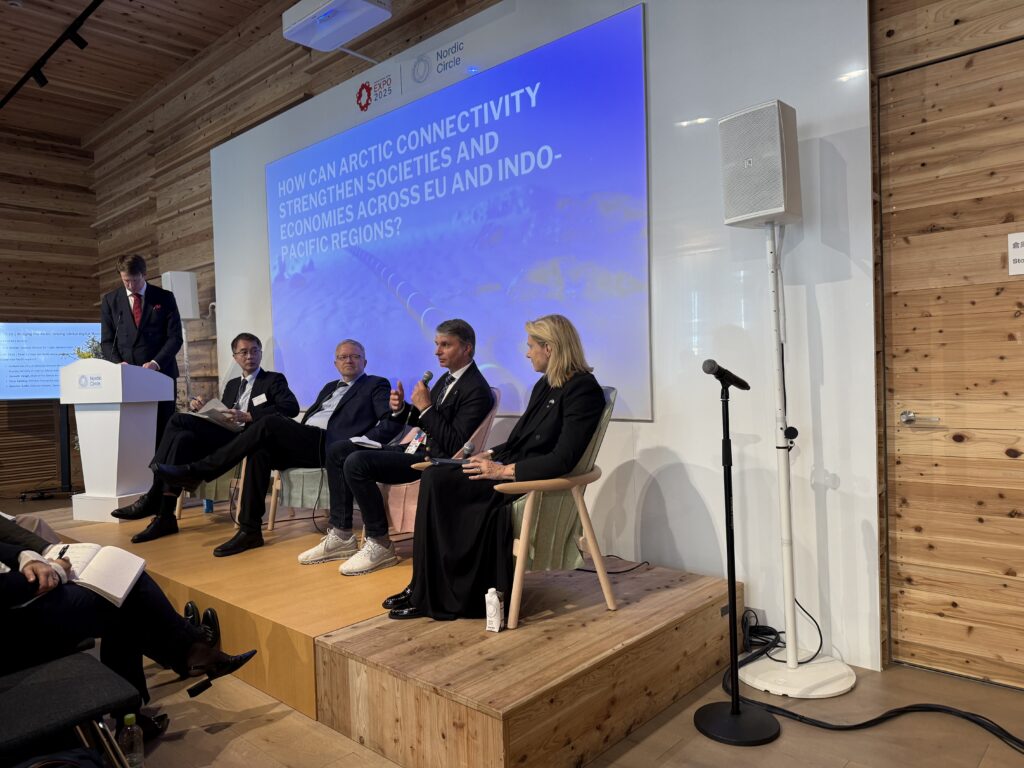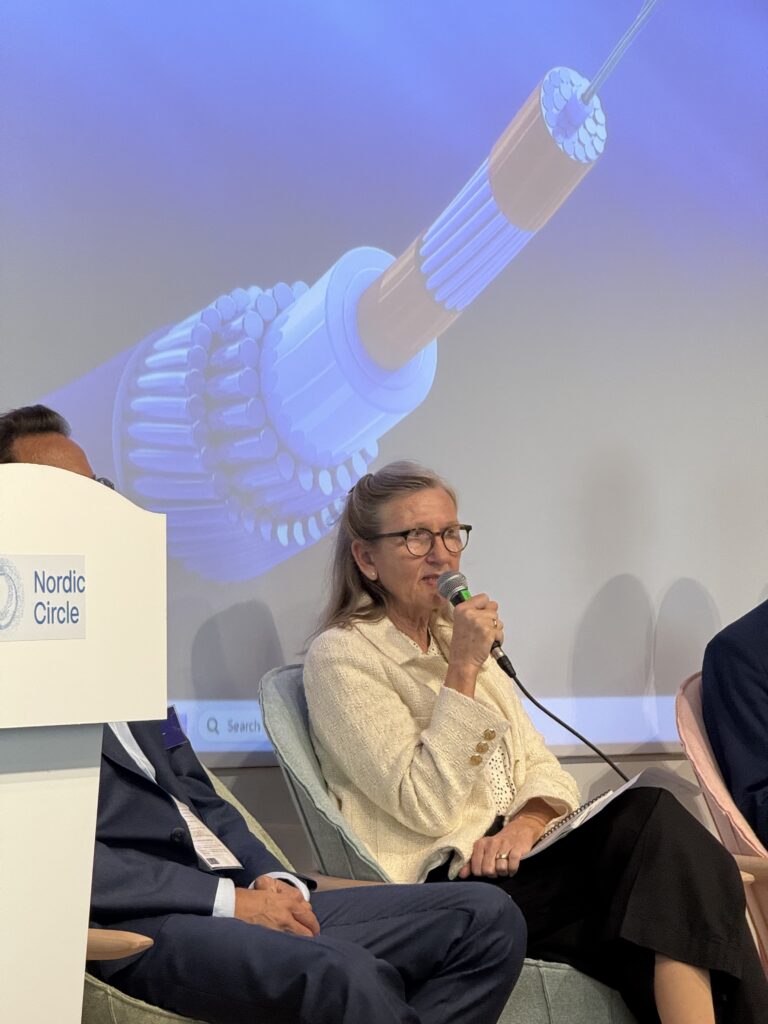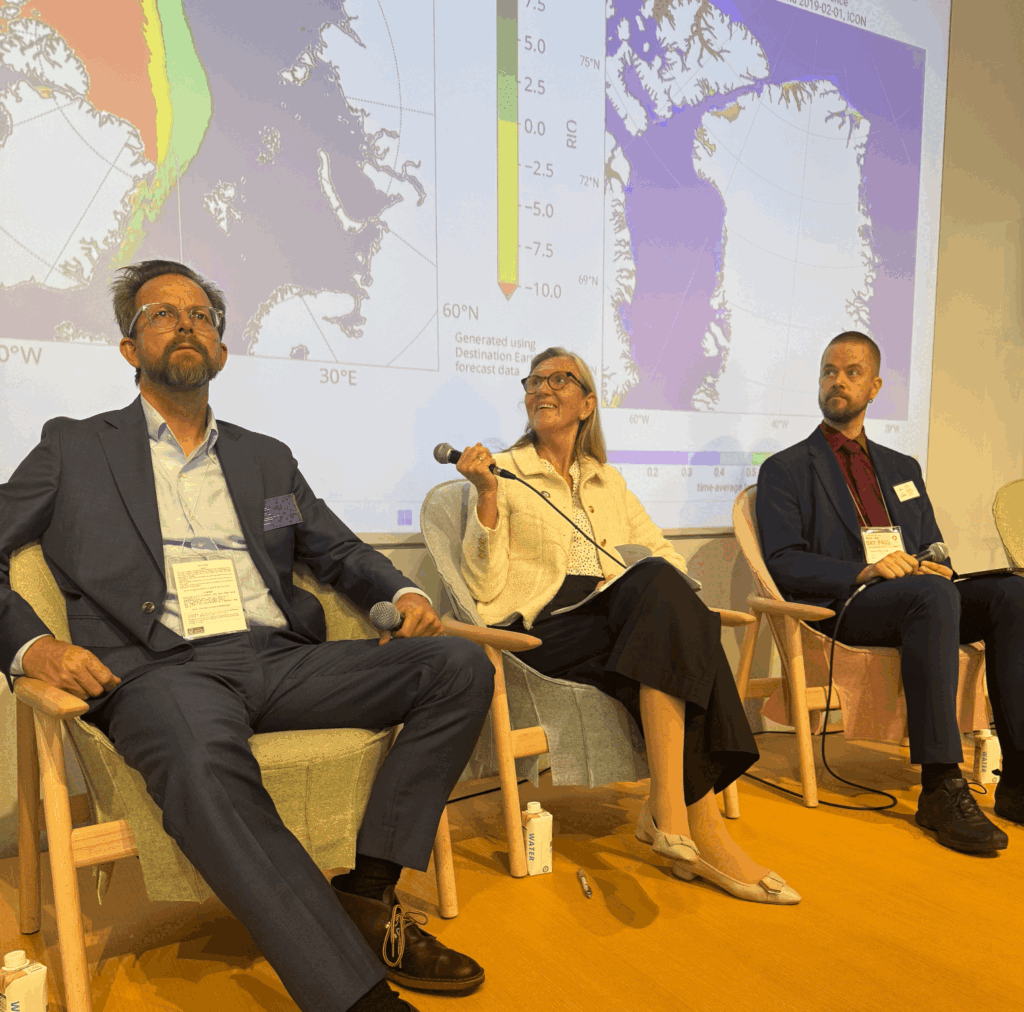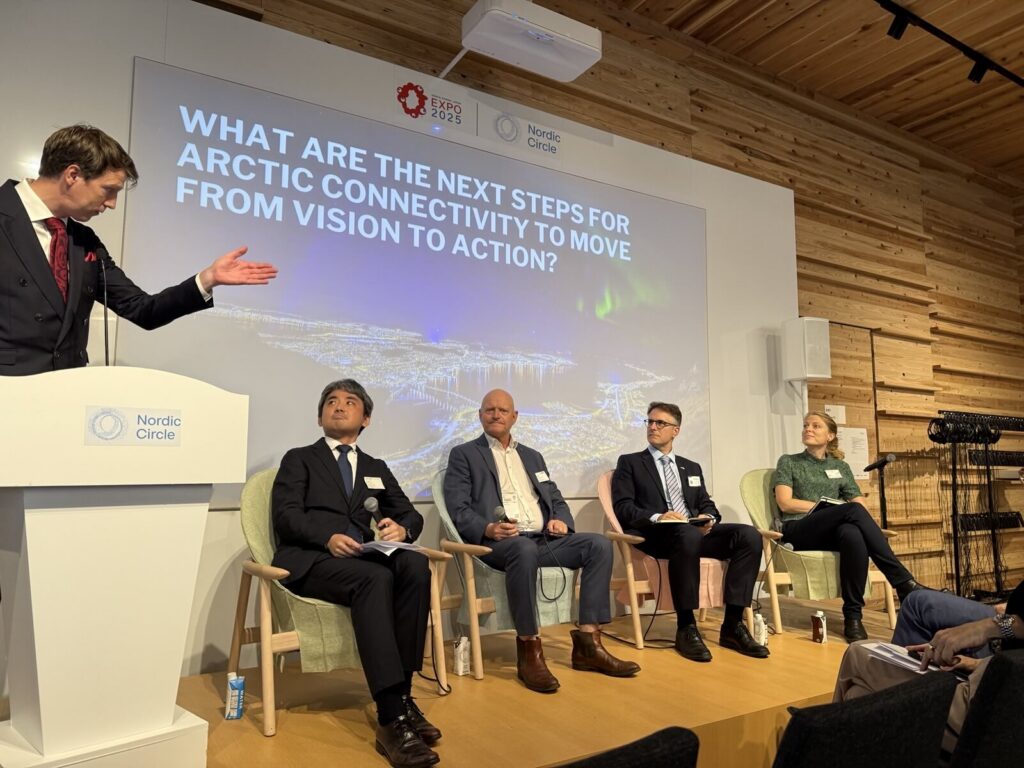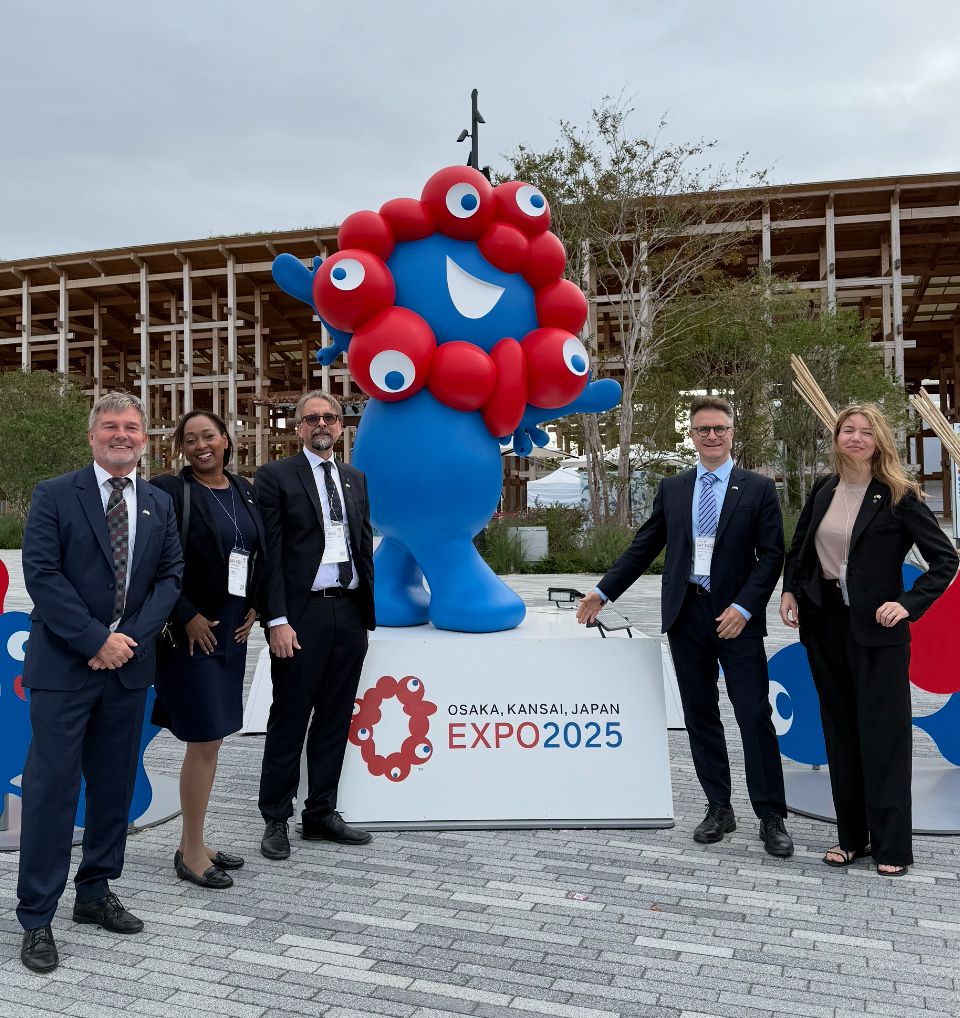Nordic and Japanese Partners Advance Arctic Connectivity Dialogue
On 11 October 2025, the Polar Connect team participated in Arctic Day at the Nordic Pavilion during World Expo 2025 in Osaka, Japan.
The event brought together ministers, policymakers, researchers, and technology leaders from across the Nordic region, Japan, and beyond to explore solutions for the Arctic in a time of rapid transformation.
Hosted by the Nordic Council of Ministers, Arctic Day served as a platform for high-level dialogue on Arctic research, digitalization, and pan-Arctic connectivity; three key areas where the Nordic countries have world-leading expertise.
Opening Session and Shared Commitment
The event was formally opened by H.R.H. Crown Princess Victoria of Sweden, with welcoming remarks from Anders Adlercreutz, Finnish Minister for Education and Nordic Cooperation and President of the Nordic Council of Ministers, and Karen Ellemann, Secretary General of the Nordic Council of Ministers.
Their introductions underscored a shared commitment to sustainable development, international collaboration, and the creation of resilient digital infrastructure for the Arctic region.
Keynote and Panels on Arctic Research and Connectivity
Several Japanese stakeholders contributed to the Arctic Day with valuable perspectives. Representing the Japanese Ministry of Internal Affairs and Communications (MIC), IRIE Akifuma, Deputy Director-General for International Economic Affairs, Global Strategy Bureau, stressed the importance of the EU-Japan partnership, and that safe, reliable cables are a Japanese priority, highlighted in a strategy announced in June 2025. MATSUDA Naoki, General Director, Arteria Networks Corporation shared insightful views on Arctic Connectivity from a commercial perspective.
Representing Polar Connect, Per Nihlén, Chair of the Polar Connect Advisory Board and Head of Unit at the Swedish Research Council, delivered a keynote on the importance of the Arctic subsea cable initiative for research, innovation, and Europe–Asia data exchange.
He emphasized how Polar Connect will enhance resilience and data security while supporting the European Union’s goals for strategic digital autonomy.
The Polar Connect partners contributed to several high-level panels throughout the day:
• Katarina Gårdfeldt, Director of the Swedish Polar Research Secretariat, joined the panel “Securing high-quality data from the Arctic: why and how?” and spoke about the critical role of reliable data and collaboration in advancing polar research.
• Katarina Bjelke, Director General of the Swedish Research Council, participated in “How can Arctic connectivity strengthen societies and economies across the EU and Indo-Pacific regions?”, addressing the potential for joint research and infrastructure projects between Europe and Asia.
• Valter Nordh, CEO of NORDUnet, joined the final session, “What are the next steps for Arctic connectivity to move from vision to action?” where he emphasized the need for political support, financial commitment, and cross-sector coordination to move Polar Connect from concept to reality.
Together, these sessions illustrated the strong alignment between research, policy, and infrastructure — and the growing international momentum toward a connected and resilient Arctic.
Bilateral Meetings and International Cooperation
Beyond the main event, the Polar Connect delegation held several meetings in Tokyo and Osaka with key partners, including Japan’s National Institute of Informatics (NII), government representatives, and private-sector leaders. Discussions focused on how Polar Connect could improve connectivity for researchers in both Japan and Europe, and how joint investment could strengthen global network resilience.
These conversations underscored the project’s broader value as both a digital infrastructure initiative and a geopolitical connector, linking the EU and Japan through a secure Arctic route.
A Week of Shared Vision
As concluded by, Peter Fatelnig, Minister Counsellor for Digital Economy Policy, Delegation of the European Union to Japan, the Japanese and the Nordics have a lot of common understandings when looking into the future. Given the life span of a subsea cable, Polar Connect is a 2030-2060 project, and both the Japanese and the Nordics understand to anticipate and plan for increased future demand.
The participation of the Swedish Research Council, NORDUnet and the Swedish Polar Research Secretariat at Arctic Day reflects the Nordic countries’ shared vision for sustainable and data-driven development in the Arctic.
Together, the partners are advancing the Polar Connect initiative to deliver a subsea cable system that will enhance connectivity, support research, and contribute to a more balanced and secure global digital ecosystem.
The Tokyo and Osaka meetings marked another important milestone on the path toward realizing this goal, strengthening ties between Nordic and Japanese stakeholders and setting the stage for continued collaboration in the years ahead.
